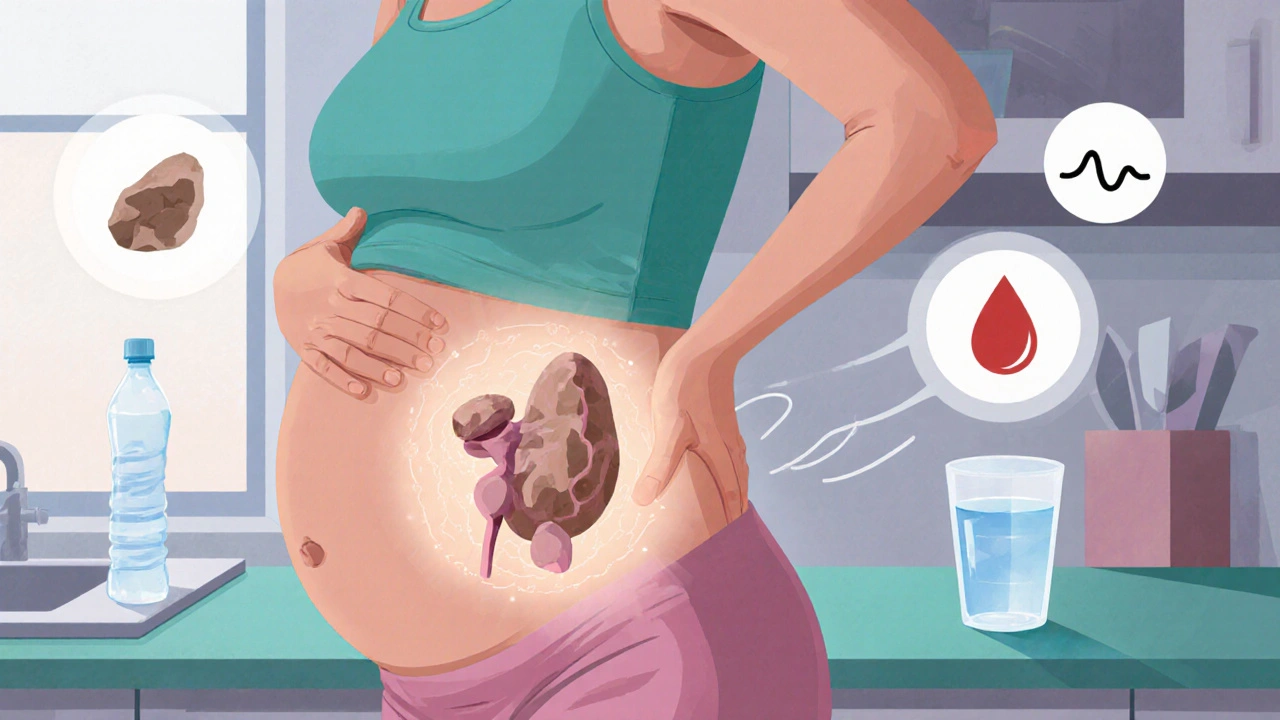Kidney Stones: Causes, Prevention, and Treatment Options
When dealing with Kidney Stones, hard mineral deposits that develop inside the kidneys and can cause severe pain as they travel through the urinary tract. Also known as renal calculi, they affect millions of people worldwide and are a leading cause of emergency department visits. Knowing what triggers them and how to manage the pain makes a huge difference in everyday life.
Kidney stone formation, medically termed Urolithiasis, covers a range of stone types such as calcium oxalate, uric acid, struvite, and cystine. The process usually starts when urine becomes supersaturated with minerals, allowing crystals to clump together. Kidney stones encompass the mineral type, size, and location, while proper hydration requires at least 2‑3 liters of fluid daily to dilute urine and prevent crystal growth. Dietary choices like high‑oxalate foods, excess animal protein, or low calcium intake influence stone risk, and certain metabolic disorders can predispose individuals to recurring episodes.
If a stone moves, the pain can be intense enough to mimic a heart attack, prompting many to seek immediate relief. Over‑the‑counter options often fall short, which is why doctors may prescribe Phenazopyridine, a urinary tract analgesic that eases burning and urgency while you pass the stone. For larger stones, the go‑to procedure is extracorporeal shock wave lithotripsy, a non‑invasive technique that breaks stones into tiny fragments using focused acoustic waves. This method requires imaging guidance and typically allows patients to return home the same day.
Preventing future episodes leans heavily on lifestyle tweaks. Drinking enough water, limiting salty and sugary beverages, and maintaining a balanced intake of calcium and potassium can keep urine chemistry in check. Some people benefit from medications that alter urine pH or inhibit crystal formation. Below you’ll find a curated set of articles that dive deeper into medication side effects, dosing tricks, and practical tips to stay ahead of kidney stone pain and recurrence. Explore the insights and start taking control of your urinary health today.
Kidney Stones and Pregnancy: Essential Facts & Safe Management Tips
Learn how to recognize, diagnose, and safely treat kidney stones during pregnancy with hydration tips, safe imaging options, and expert-led management advice.
View more
